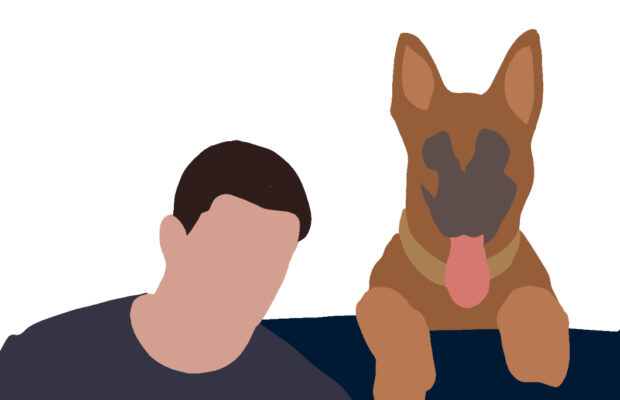Channing Tatum meets a man’s not-so best friend in “Dog”

While the name “Dog” lacks creativity, the film itself exceeded the low expectations that the name presented itself with. In the film, Channing Tatum plays Jackson Briggs, a dwelling U.S Army Ranger veteran, who takes Lulu, a dog who served in the Afghanistan war, to the funeral of her handler. Briggs’ story starts with an emotional scene of him struggling with his traumatic brain injury obtained while being deployed in the Middle East. Despite this injury, Briggs attempts to get a job with the diplomatic security corps but is required to have a letter of recommendation from a superior officer. After learning about his Army buddy, Sgt. Riley Rodriguez’s unexpected death, Briggs is offered an opportunity to get this letter of recommendation in exchange for taking Rodriguez’s dog, Lulu, to his funeral service.
This movie under-delivers with its basic script and fails to show deeper themes, in particular, mental health. The mental health crisis of the military community dealing with Post Traumatic Stress Disorder (PTSD) is introduced through Briggs’ emotional and physical pain but is never deeply explored. The movie focuses on the relationship between Lulu and Jackson who are both wounded warriors that must learn to trust each other and help each other heal. However, the directors have left a lot of holes in the understanding of military PTSD, which is essential for people to understand.
On the flip side, there are a few laughs, and it’s generally pleasant to watch characters interact with a highly trained army dog, even a rambunctious and buoyant one like Lulu. The cinematography by Newton Thomas Sigel captures the welcoming road, the cluttered car, and the different landscapes that Briggs and Lulu explore as they drive down the Pacific coast. It leaves the audience with a heart-warming feeling as does any movie with a dog.
The film’s humor is gentle and mostly unthreatening, displayed through Lulu’s behavior. She chews up the seats in Jackson’s Ford Bronco, disrupts his evening with a pair of spiritual practitioners in Portland, and causes an unfortunate upheaval in a San Francisco hotel. Briggs has various awkward human encounters, specifically with cannabis growers and a resentful, racist police officer.
In the San Francisco hotel, Lulu has an incident where she attacks a Middle-Eastern doctor due to her training in Afghanistan. This leaves a controversial tone that must be talked about, but the movie moves on without properly addressing the issue.
Without a consistent tone, the film doesn’t come together in a meaningful way, leaving the plot overall weak and poorly carried out. While the intentions and underlying message is important, it could’ve been produced in a much more powerful manner, while addressing more important topics.


